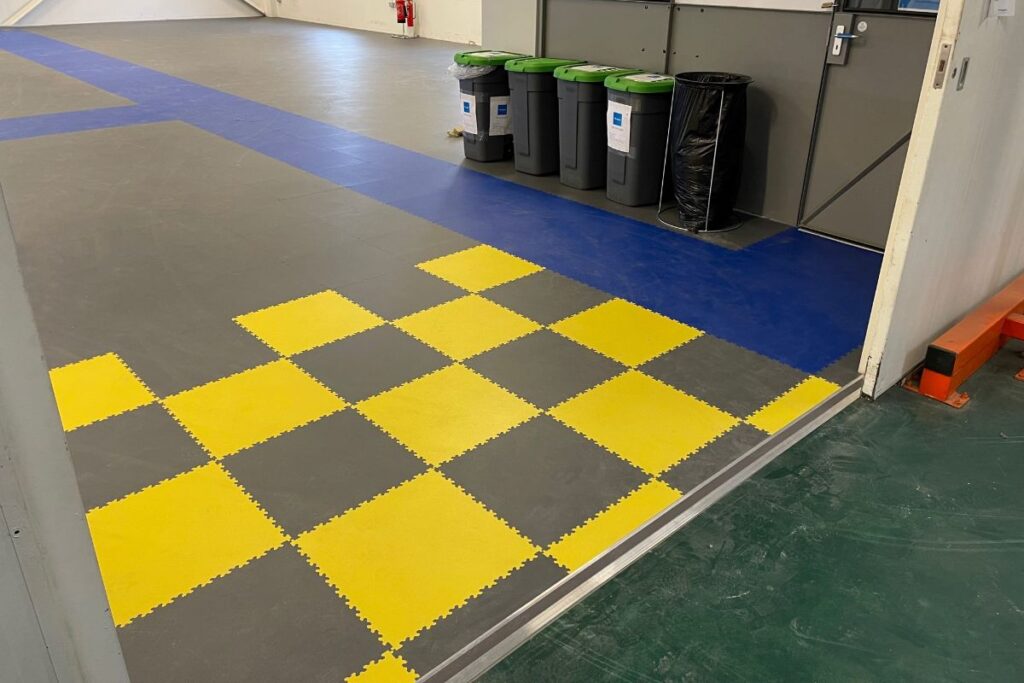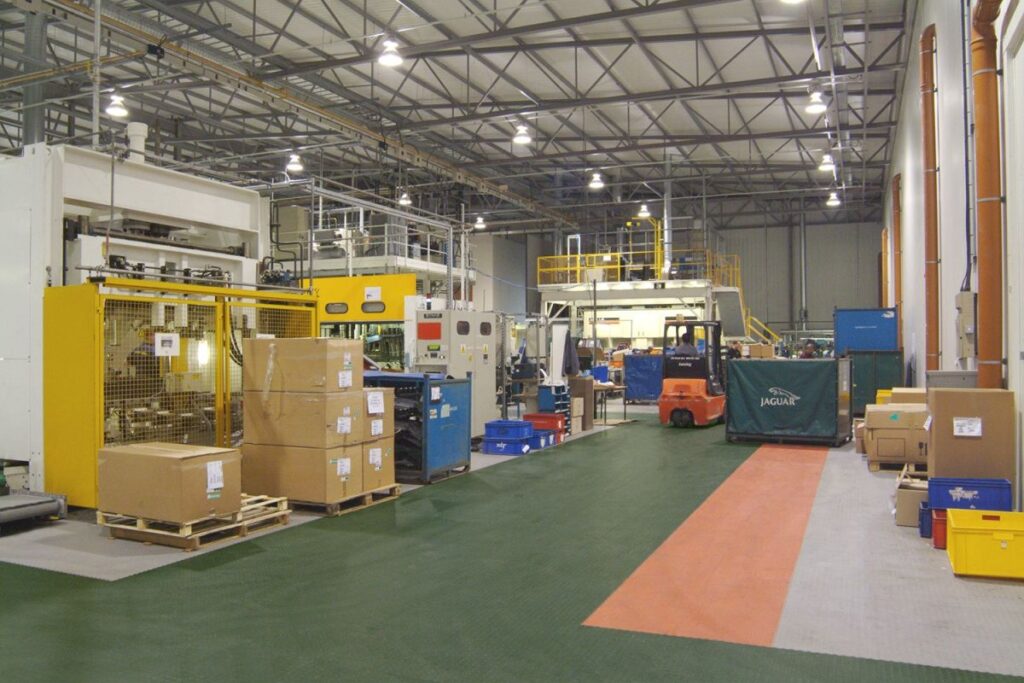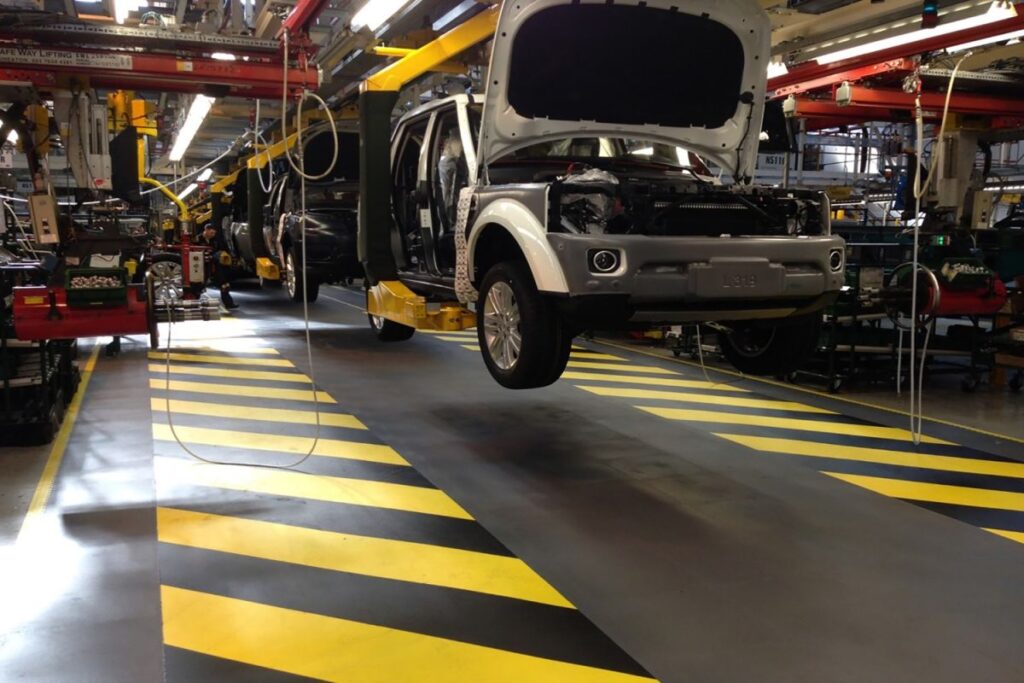Looking for Epoxy Resin flooring but would like to explore your options for alternatives? Look no further, there is a great alternative to epoxy resin flooring and here’s why you should consider it..
Epoxy Resin Flooring V Interlocking Flooring Tiles
- Epoxy Resin can take a long time to cure, sometimes up to 6 weeks, meaning cracks or imperfections can appear if not cared for during that initial stage. Whereas Interlocking floor tiles are quickly and easily installed, require minimal subfloor preparation and can even be installed over damp and uneven subfloors. The interlocking floor tiles don’t require any time to settle which means work can movement of pallets trucks etc. can resume as soon as installation is finished.
- Experience is also needed when installing epoxy flooring solutions as time mixing and pouring the solution is essential, sometimes it’s better to seek the help of a professional especially if mistakes are made these aren’t easily rectified. Whereas interlocking floor tiles require no experience to install, it’s a very simple process if you have the right tools and common sense!
- Epoxy floors also can’t be installed in cold temperatures, expensive heating systems would be required to heat the room and the floor to room temperature level. Whereas interlocking floor tiles can be installed at any temperature. It is recommended to allow the tiles to acclimate to the specific room temperature for 24 hours but this is not dependant on an exact temperature.
- Moisture levels can affect the durability of epoxy floors because it doesn’t breathe once it is cured so any moisture trapped underneath can be a problem when it evaporates which can lead to bubbling or cracking resulting in the eventual need of repairing. Whereas interlocking floor tiles are extremely durable and hardwearing and come with a 25-year wear guarantee.
- Epoxy floors also have to be repainted after a couple of years, one customer of ours British Energy reported that this caused them so many logistical problems every time they had to repaint their epoxy floor. Whereas interlocking floor tiles over time if any serious damage occurs on the tiles, they can be easily replaced as they are loose lay and don’t have any adhesives so it is very easy to lift the damaged tiles and replace with new ones.
Speaking from Experience…
“We looked at several options prior to choosing R-Tile as we had been painting the floor with a two coat epoxy resin every two years, with all the logistical problems that entails . The product needed to be able to withstand a point loading of in excess of 2 tonnes and provide a warmer feel to the area in question.”
British Energy
Why choose R-Tile Interlocking flooring solutions
- Suitable for trucks, HGV’s and heavy duty applications
- Competitive rates
- Easy to install
- We offer a free site survey
- No damp proof membrane, screed or adhesives required
- Reduces dust and noise
- Excellent durability and slip resistance
- Warm – insulates the floor
- Fire retardant – Bfl S1
- Reduces fatigue
- Easy to clean and maintain
- Lower life cycle cost
- Easy to move and reuse
- CE accredited
- Environmentally sustainable
- Choice of 10 colours
- UK Manufacturers
Interlocking Floor Tile Options
- Textured – 7mm, 9mm
- Studded
Interlocking Floor Tiles V Epoxy Resin Flooring – A Closer look
- Subfloor Preparation
Epoxy Resin can take a long time to cure, sometimes up to 6 weeks, meaning cracks or imperfections can appear if not cared for during that initial stage.
R-Tile interlocking floor tiles are quickly and easily installed, require minimal subfloor preparation and can even be installed over damp and uneven subfloors. The interlocking floor tiles don’t require any time to settle which means work can movement of pallets trucks etc. can resume as soon as installation is finished.
- Experience
Experience is also needed when installing epoxy flooring solutions as time mixing and pouring the solution is essential, sometimes it’s better to seek the help of a professional especially if mistakes are made these aren’t easily rectified.
No experience is needed to install R-Tile interlocking floor tiles, it’s a very simple process if you have the right tools and common sense!
- Temperature
Epoxy floors also can’t be installed in cold temperatures, expensive heating systems would be required to heat the room and the floor to room temperature level.
The interlocking floor tiles can be installed at any temperature. It is recommended to allow the tiles to acclimate to the specific room temperature for 24 hours but this is not dependant on an exact temperature.
- Durability
Moisture levels can affect the durability of epoxy floors because it doesn’t breathe once it is cured so any moisture trapped underneath can be a problem when it evaporates which can lead to bubbling or cracking resulting in the eventual need of repairing.
The R-Tile interlocking floor tiles are extremely durable and hardwearing and come with a 25-year wear guarantee.
- Maintenance
Epoxy floors also have to be repainted after a couple of years, one customer of ours British Energy reported that this caused them so many logistical problems every time they had to repaint their epoxy floor.
Over time if any serious damage occurs on the tiles, they can be easily replaced as they are loose lay and don’t have any adhesives so it is very easy to lift the damaged tiles and replace with new ones.
Now we’ve made your search easier, request free samples or a quote, email [email protected] or phone us on 02837510367.



